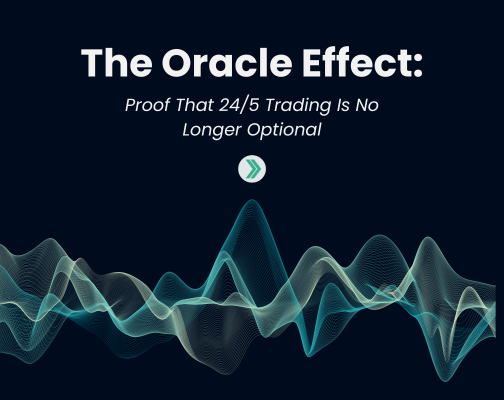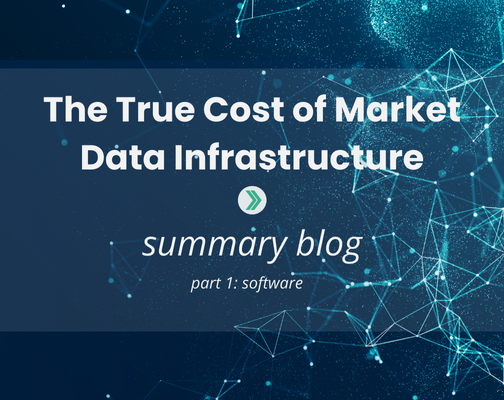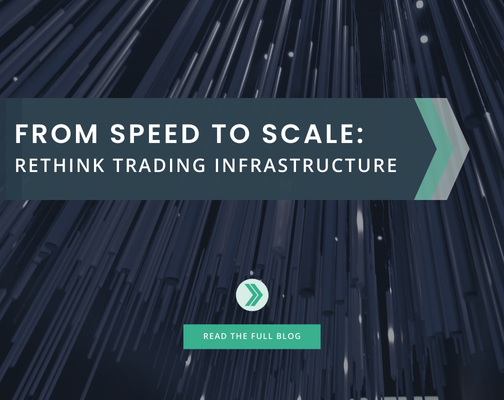How Hong Kong’s Stamp Duty Impacts Trading on HKEX
The Hong Kong government imposes a stamp duty on the value of all share transfers, which has a significant effect on the cost of trading on the Hong Kong Exchange (HKEX). The duty is the largest single fee paid in a securities transaction in Hong Kong, affecting not only transaction costs, but the Hong Kong market as a whole. So, planning for its impact is an important step before entering this market.
Basics of the Stamp Duty
Stamp duties aren’t unique to Hong Kong—many governments impose financial transaction taxes, all with different rules and exemptions. Hong Kong’s duty applies to all stocks listed on the HKEX and all transfers of shares in Hong Kong-based companies. The stamp duty is currently set at 0.2%—0.1% each from the buyer and the seller.
Unlike duties in some other markets, Hong Kong’s stamp duty doesn’t differentiate between liquidity makers and takers. Dark pools, known in Hong Kong as “alternative liquidity pools,” are also subject to the stamp duty.
Exchange participants are required to pay the stamp duty on behalf of their clients by 11 a.m. on the settlement date, which is the second trading day following the transaction date. The duty is paid electronically, and exchange participants must keep deposits on hand in a designated account based on their average daily turnover.
Comparing the Duty with other Transaction Fees
The stamp duty makes up about 90% of all official transaction fees on the HKEX. Other fees include a Securities and Futures Commission levy of 0.0027% per side, an exchange fee of 0.005% per side, and a settlement fee of 0.002% per side (ranging from $2 to $100). For each trade, regardless of size, the seller must pay a $5.00 HKD transfer of deed stamp duty and the buyer must pay a $2.50 HKD transfer fee. For market-making, the exchange fee and SFC levy are waived.
Table 1. Example Fees and Taxes for Transaction of 10,000 Shares Priced at $10 HKD Per Share (Totaling $100,000 HKD or USD 12,855)
| Trading fee/tax | HKD | USD | % of Total |
| Stamp duty* | $200.00 | $25.71 | 88.1 |
| Exchange fee* | $10.00 | $1.29 | 4.4 |
| SFC levy* | $5.40 | $0.69 | 2.4 |
| Settlement fee* | $4.00 | $0.51 | 1.8 |
| Transfer deed stamp duty | $5.00 | $0.64 | 2.2 |
| Transfer fee | $2.50 | $0.32 | 1.1 |
| Total fees | $226.90 | $29.16 | 100.0 |
Although the stamp duty rate has been cut by two-thirds since the early 1990s, the Hong Kong government has resisted calls to repeal it, because of the city’s reliance on the revenues it generates. The government currently collects no sales or capital gains taxes, and stamp duties from share transfers made up 6% of total revenues in fiscal year 2017-2018.
Therefore, firms trading in Hong Kong must continue to plan for how to minimize their liability from the duty. One way market participants have accomplished this is by leveraging its exemptions.
Stamp Duty Exemptions
Firms can maximize trading opportunities without incurring stamp duties by trading in exempted products. The duty is levied only on transfers of shares, so cash-settled derivatives as well as ETFs and other index-based basket instruments are not taxed. In Hong Kong, traders rely heavily on these products, and this has made the Hong Kong Exchange the world’s largest trading center for securitized derivatives and the leading Asia-Pacific market for trading volume of ETF options.
Derivative contracts are exempt from Hong Kong’s stamp duty since they don’t involve physical transfer of shares. Among the most popular derivatives trading on the HKEX are warrants (which are company-issued), callable bull/bear contracts (contracts also issued by someone other than the exchange), and inline warrants (warrants designed to profit on index stability). Structured derivative products made up about 21% of HKEX’s average daily turnover in 2019. Callable bull/bear contracts were particularly popular, accounting for more than half of that amount.
Another major category of stamp duty-exempt products are pooled investments—those that are based on the value of an underlying basket of assets, such as exchange-traded funds (ETFs). Hong Kong lifted the stamp duty on all ETFs in 2015, to better compete with other global markets. Leveraged and inverse products are also included in this exemption. They seek to deliver a multiple (leveraged) or opposite (inverse) result of an index. For instance, when the Hang Seng Index gains 2%, a 2x leveraged product would aim for a 4% increase, while a 2x inverse product would target a 4% decrease. Without the stamp duty on these products, transaction cost analysis may reveal a more profitable trading strategy.
Effects of Stamp Duty on the Markets
In addition to trading strategies, the stamp duty has more widespread challenges for the Hong Kong market as a whole. Taxing all equities trades, including market making, can dampen overall liquidity. That in turn can impair price discovery and widen bid-ask spreads, adding to the risks of trading equities and their derivatives.
HKEX has added products to boost liquidity, with modest results. Despite initiatives in recent years, the average daily turnover for the exchange’s main board increased just 21% from December 2013 to December 2019. Improving liquidity was one of the key drivers of Hong Kong’s 2014 decision to embark on the Shanghai and Shenzhen Stock Connect programs with mainland China. Although northbound transactions on the Stock Connect are not subject to the Hong Kong stamp duty, sellers on the Stock Connect still pay an equal-sized 0.1% stamp duty to the mainland Chinese government.
Stamp duties also tend to concentrate trading activity in a limited number of stocks, and in Hong Kong, the statistics bear that out. In 2019, turnover of the 20 most active stocks accounted for 43% of all equities turnover. This makes access to liquidity on most securities harder to come by and increases spreads.
While the stamp duty’s effect on liquidity significantly impacts trading in Hong Kong, regional politics and global economics have heightened volatility in the market. Expanding to this region requires continued awareness to shifting liquidity and volatility in order to have the fullest picture of the challenges and opportunities of this market.
Market Data & Trading Infrastructure
for Hong Kong
Getting started in Hong Kong requires some technical knowledge to compliment trading strategy and transaction cost analysis. All instruments are accessed across the Hong Kong Exchange’s two feeds. Warrants, ETFs, and callable contracts are traded on HKEX’s securities market and the market data is available via the Orion Market Data Platform-Securities Market (OMD-C) feed. Options and futures trade on the exchange’s derivatives market with market data available via the Orion Market Data Platform-Derivatives (OMD-D) feed.
Likewise, a trading firm should anticipate their hardware and networking needs for their Hong Kong trading infrastructure. Relative to building market data infrastructure from scratch, vendor solutions offer faster time-to-market and can deliver lower total costs. These solutions can range from a simple, normalized feed that is subscribed to via an API or through a range of private infrastructure alternatives that vary according to data center and customization needs.
Exegy has been operating in global markets for more than a decade. Our Hong Kong-based sales, service, and engineering staff understand the importance of trading costs and how to plan a trading infrastructure to address them. Our solutions vary to meet your needs:
- The Axiom consolidated feed provides quick access to HKEX’s OMD feeds for securities and derivatives, both premium and full tick.
- Our flagship Exegy Ticker Plant includes a basket calculation engine that aids in ETF trading by computing the Net Asset Value (NAV) on every price update of the underlying assets.
- Our low-latency software-based ticker plant, Proxime, can be installed in commodity servers and deployed to new data centers quickly.
To learn how Exegy can help you scale up your global connectivity, request a consultation.
*The financial and regulatory landscape in Hong Kong is evolving and subject to updates by Hong Kong authorities and the Hong Kong Exchange (HKEX). Check government and exchange websites for the most current information. Overseas tax issues can be complex; consult a qualified tax professional to discuss your firm’s unique situation.




